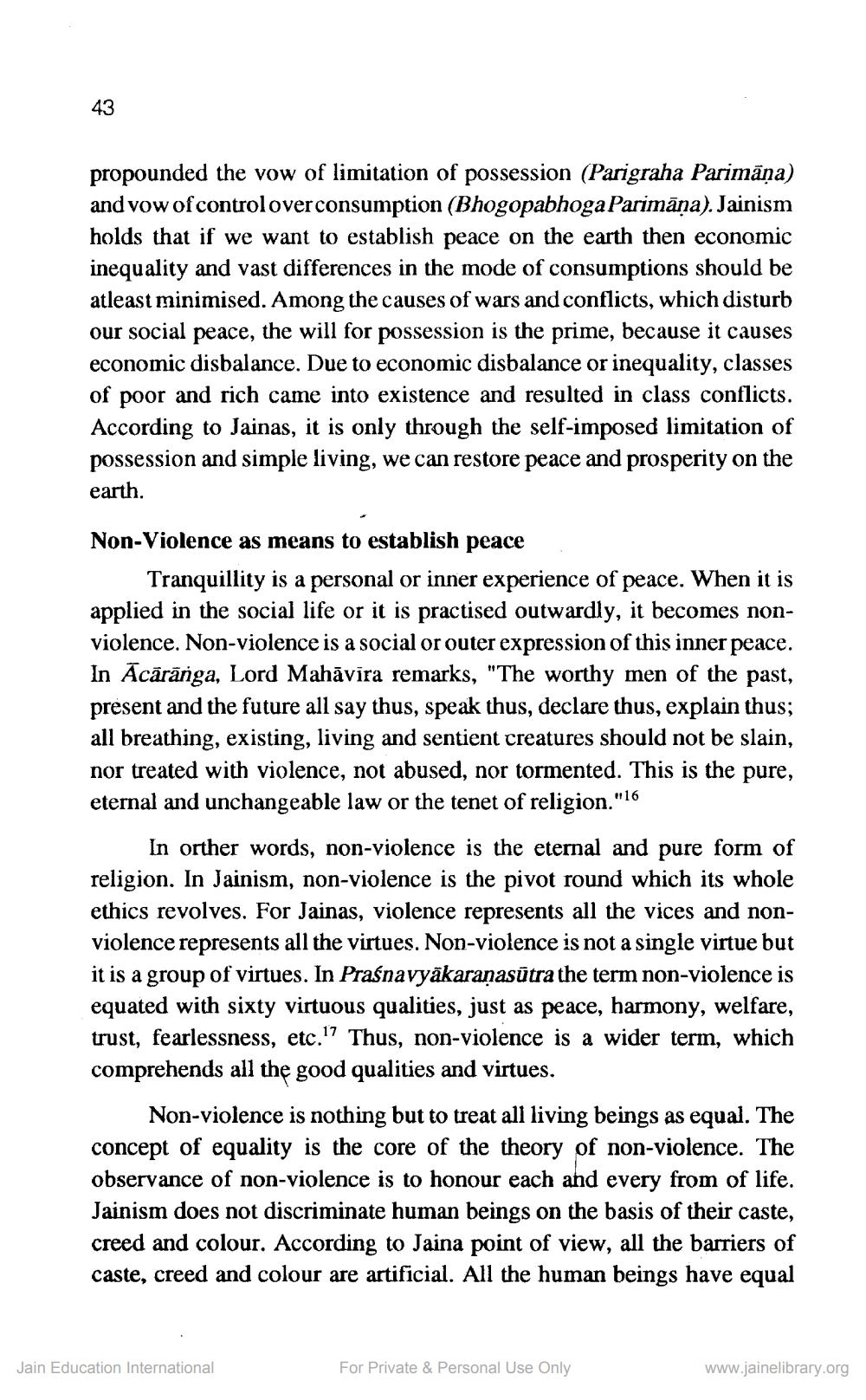________________
43
propounded the vow of limitation of possession (Parigraha Parimāņa) and vow of control over consumption (Bhogopabhoga Parimāna). Jainism holds that if we want to establish peace on the earth then economic inequality and vast differences in the mode of consumptions should be atleast minimised. Among the causes of wars and conflicts, which disturb our social peace, the will for possession is the prime, because it causes economic disbalance. Due to economic disbalance or inequality, classes of poor and rich came into existence and resulted in class conflicts. According to Jainas, it is only through the self-imposed limitation of possession and simple living, we can restore peace and prosperity on the earth.
Non-Violence as means to establish peace
Tranquillity is a personal or inner experience of peace. When it is applied in the social life or it is practised outwardly, it becomes nonviolence. Non-violence is a social or outer expression of this inner peace. In Ācārārga, Lord Mahāvīra remarks, "The worthy men of the past, present and the future all say thus, speak thus, declare thus, explain thus; all breathing, existing, living and sentient creatures should not be slain, nor treated with violence, not abused, nor tormented. This is the pure, eternal and unchangeable law or the tenet of religion."16
In orther words, non-violence is the eternal and pure form of religion. In Jainism, non-violence is the pivot round which its whole ethics revolves. For Jainas, violence represents all the vices and nonviolence represents all the virtues. Non-violence is not a single virtue but it is a group of virtues. In Praśnavyākaranasūtra the term non-violence is equated with sixty virtuous qualities, just as peace, harmony, welfare, trust, fearlessness, etc.17 Thus, non-violence is a wider term, which comprehends all the good qualities and virtues.
Non-violence is nothing but to treat all living beings as equal. The concept of equality is the core of the theory of non-violence. The observance of non-violence is to honour each and every from of life. Jainism does not discriminate human beings on the basis of their caste, creed and colour. According to Jaina point of view, all the barriers of caste, creed and colour are artificial. All the human beings have equal
Jain Education International
For Private & Personal Use Only
www.jainelibrary.org




